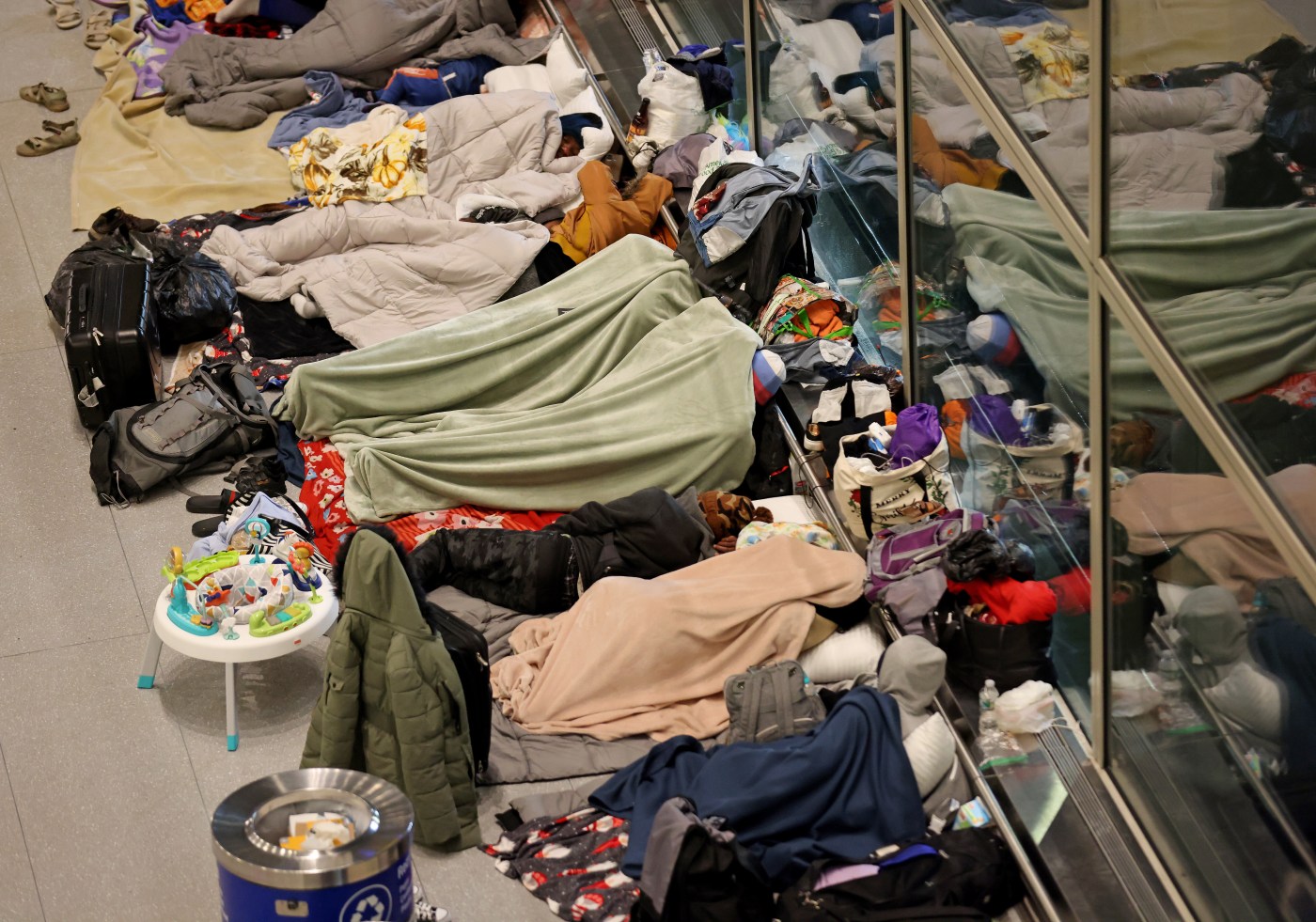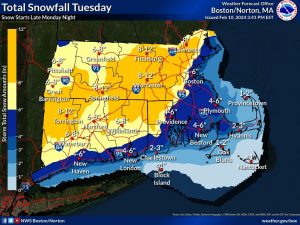
Thousands to take to Boston Common to highlight housing and migrant crisis
More than 4,000 people are expected to turn out to Boston Common Sunday to raise “much needed” funding for agencies that support the homeless, shining a light on the dire housing and migrant crisis rattling the region.
The anticipated crowd will be the largest in the eight years that Winter Walk has brought agencies and community members together in a show of solidarity with individuals experiencing homelessness, event organizer Paulina Kusiak Daigle told the Herald on Saturday.
Over $365,000 has already been raised for 13 Boston-based partner programs as well as six nonprofits that will be walking remotely in other parts of the state Sunday. The goal is to bring in at least $500,000, with fundraising continuing through the end of February.
“If we don’t have the money to react when we have that crisis, we have a problem,” Daigle said. “Everything that is raised during the Winter Walk is unrestricted which means it can be used during a crisis, it can be used with urgency. That’s what makes it very special and helpful.”
Karen LaFrazia, president and CEO of St. Francis House, a participating agency, called events like the Winter Walk “crucial” in helping meet the “unprecedented demand” being pressed onto city shelters.
Just within the past few days, Mayor Michelle Wu said an overflow site for migrant families at a Roxbury recreation center was quickly reaching its 400-person capacity, a week after it was opened by the state.
That was then followed by the city giving the Fort Point neighborhood a heads-up that the state was considering a safety-net site for migrants at a private office building on Farnsworth Street, catching residents there off guard.
State Sen. Nick Collins, from Southie, rebuked the idea, suggesting the Healey administration consider the Mount Ida Campus of UMass Amherst in Newton.
Meanwhile, homeless families already in emergency shelters, including migrants from other countries, may become eligible for a state-run program that provides up to $30,000 over two years to find stable housing.
But as LaFrazia pointed out to the Herald, while there’s been “lots of attention” on migrant families, the large quantity of migrants who are coming into the city as single individuals is going quietly under the radar.
Massachusetts is legally required to house homeless families due to the state’s right-to-shelter law. That’s not the case for single individuals, though, placing the burden on the adult shelter system and the “generosity of private individuals,” LaFrazia said.
Between last July and December, St. Francis House, the city’s largest day shelter, saw 1,346 new people facing homelessness needing services, a “staggering” 46% increase from the same timeframe a year before.
Migrants made up 20% of that spike, LaFrazia said, highlighting how they also received 16% more meals and 30% more clothing items compared to those who’ve been homeless here.
“It basically becomes a private philanthropy that enables us collectively as a system,” LaFrazia said. “There’s nothing legally compelling the state to provide shelter for single unaccompanied adults. The shelters themselves respond to that from a place of a moral obligation and bear the financial burden of doing that.”
Jim O’Connell, president of Boston Healthcare for the Homeless Program, will be a featured speaker at Sunday’s Winter Walk, an event he has participated in the past seven years since it started in February 2017.
O’Connell, speaking to the Herald, said the past year has emphasized how critical the housing crisis is, first with Mass and Cass, a homeless encampment that had been a sore point in the city before officials ordered tents down in November.
Migrants are “magnifying the problem,” O’Connell said. His organization has doctors, nurses and social workers providing services at most shelters around the city as well as Boston Medical Center and Massachusetts General Hospital.
“Most of the migrant families are young, relatively healthy families who have just done a migration this way,” O’Connell said, “whereas most of the people we see out on the streets have been there for long periods of time, and they have suffered from years of neglect, abuse, etc., and they are older and have more health needs.”
“Nonetheless, I know as we get to know these families, the trauma they’ve been through and what they went through from getting from Haiti, through Chili, to here is going to require lots of care.”


